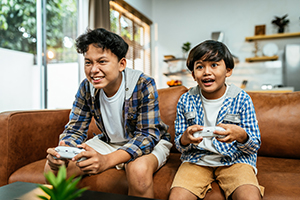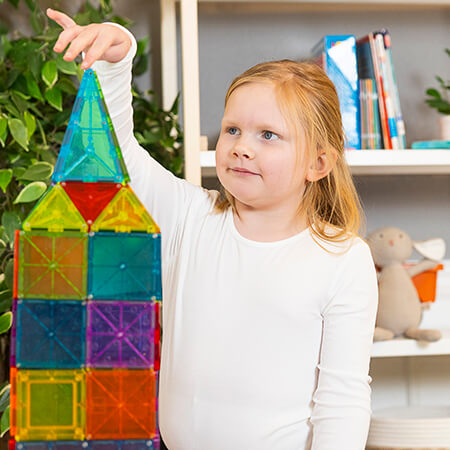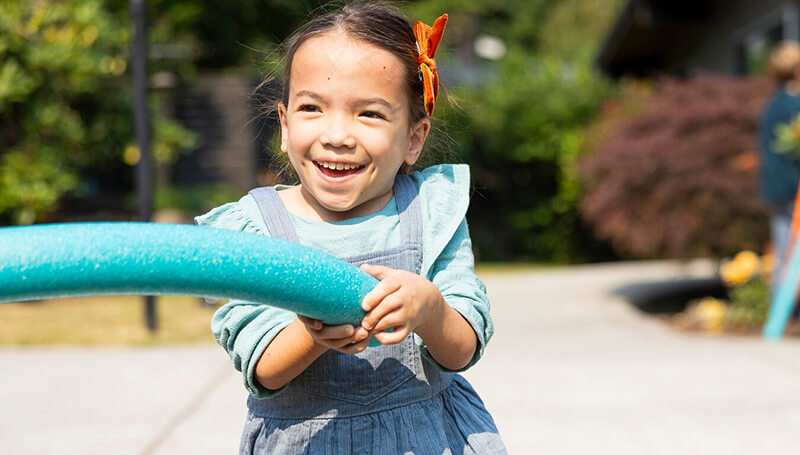Help Kids Avoid Toxic Gaming

Online gaming can be tons of fun for people of all ages. Multiplayer games like Animal Crossing, Fortnite and Minecraft give players a chance to socialize, practice teamwork and solve problems. For kids especially, gaming shows them they can improve their skills through practice. It can also be a platform for teaching them to cope with frustration and disappointment when things don’t go their way.
Online gaming also has downsides. It can pull kids away from other essential activities like physical exercise, sleeping, schoolwork and family time — which is why it’s so important to have a healthy balance of screen time. And because multiplayer online gaming allows players to talk with and message other players in real time, it can expose them to risks. Kids may experience extreme trash talking, profanity and even bullying. Gamers call this ‘toxic’ behavior — which can also include spamming hurtful messages and ‘trolling’ or harassing players.
How can parents help protect kids from toxic behavior in online gaming? Forest Coyle, a therapeutic gaming specialist at Seattle Children’s, says it’s about teaching kids how to respond to negative interactions. He encourages players to know when to report, mute and block toxic gamers. He adds, “Most games and gaming consoles have great parental controls that allow online gameplay while restricting communication features like text messaging and voice chatting. This is especially helpful for parents of younger gamers.”
Before allowing kids to play new games, parents should research them using ESRB ratings and reviews from trusted sources. Then, allow game play in open, high-traffic areas of your home where you can easily see what’s going on. Check in with your child often to get a feeling for their mood. Ensure they’re being respectful to others and encourage them to leave a game if there’s toxic behavior.
Also be certain your child understands how to stay safe online. Younger kids should only play with friends and family they know in person. Older kids must never share personal information or agree to meet with gamers they don’t know in real life. Be sure your child knows they should come to you right away if any interaction ever feels bad or weird.
Gaming can be a great way to bond as a family. Ask your child to teach you their favorite game so you can join them sometimes. And if you’re a gamer yourself, be a positive role model. Show them examples of how to interact with others online and be sure your child sees you being respectful and supportive of other gamers.
Need help balancing screen time with other activities? Create a media-use plan that works for your family.


